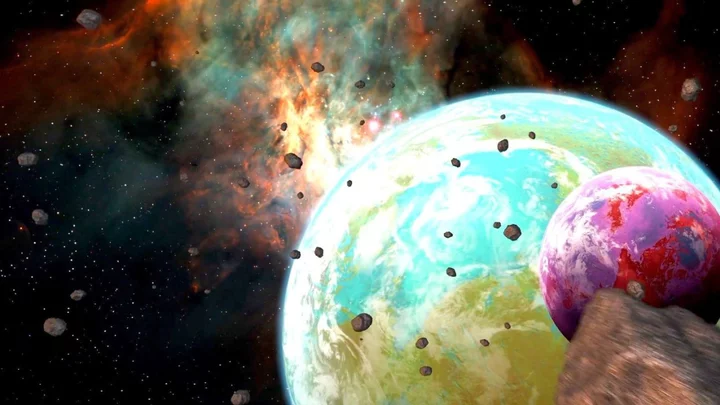Scientists are optimistic about the possibility of finding life on other planets.
Nasa's James Webb Space Telescope (JWST) found a possible sign of a gas that, on Earth, is produced by simple marine organisms. It was detected this month in the atmosphere of a planet named K2-18b, which is 120 light years away.
The planet is in what astronomers call ''the Goldilocks zone' - the right distance away from its star for the surface temperature to be neither too hot nor too cold, but just right for there to be liquid water, which is essential to support life.
The team expects to know in a year's time whether the hints are confirmed or have gone away.
"We live in an infinite Universe, with infinite stars and planets. And it's been obvious to many of us that we can't be the only intelligent life out there," Prof Catherine Heymans, Scotland's Astronomer Royal told the BBC.
"We now have the technology and the capability to answer the question of whether we are alone in the cosmos."
Prof Nikku Madhusudhan of the Institute of Astronomy at Cambridge University, who led the study, told the BBC that if the hints are confirmed "it would radically change the way we think about the search for life".
"If we find signs of life on the very first planet we study, it will raise the possibility that life is common in the Universe."
He predicted that within five years there will be "a major transformation" in our understanding of life in the Universe.
If his team don't find life signs on K2-18b, they have 10 more Goldilocks planets on their list to study - and possibly many more after that. Even finding nothing would "provide important insights into the possibility of life on such planets", he said.
Meanwhile there are other separate projects all looking for signs of life in the universe.
Pretty exciting.
Sign up to our free Indy100 weekly newsletter
Have your say in our news democracy. Click the upvote icon at the top of the page to help raise this article through the indy100 rankings.

